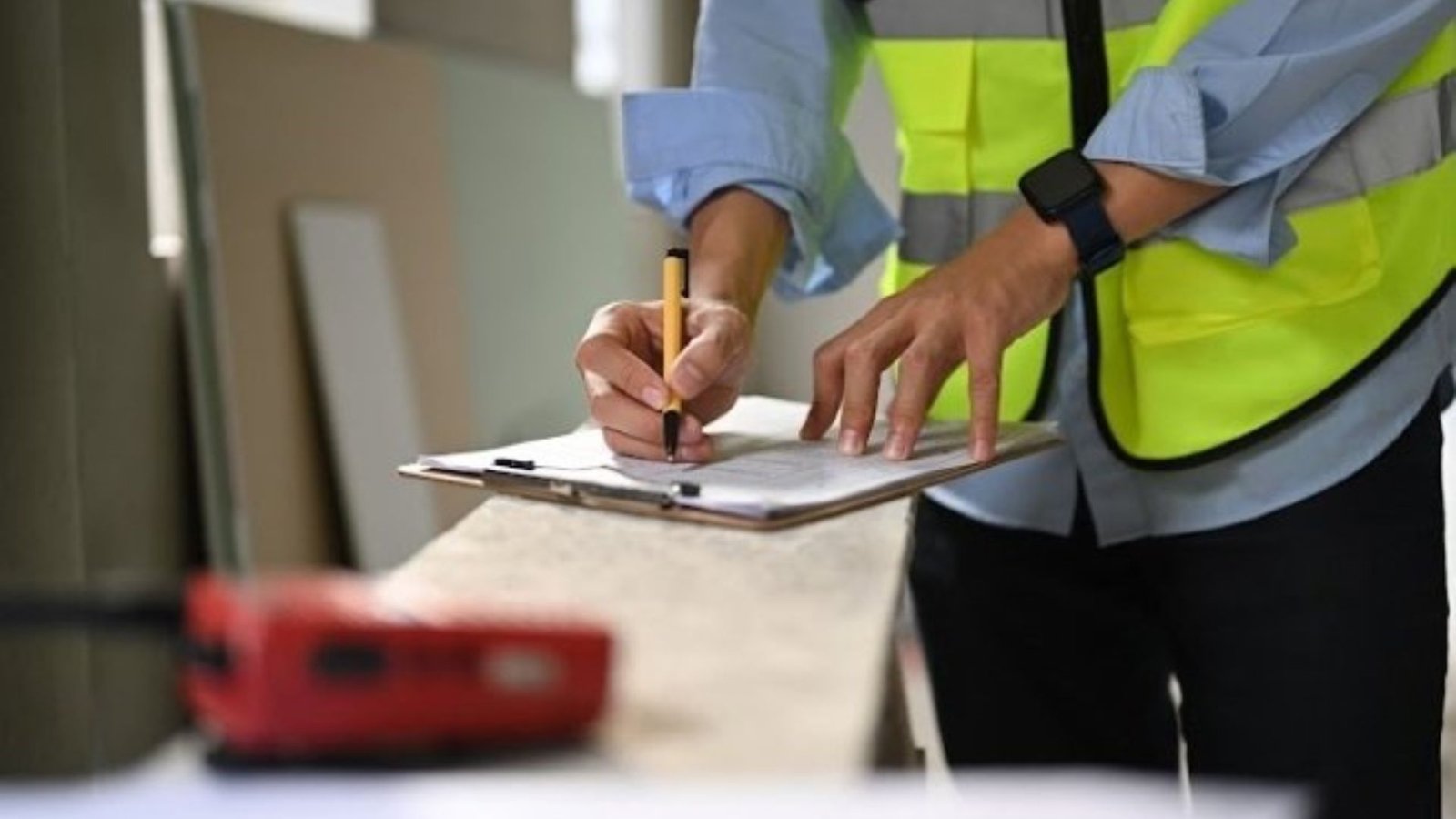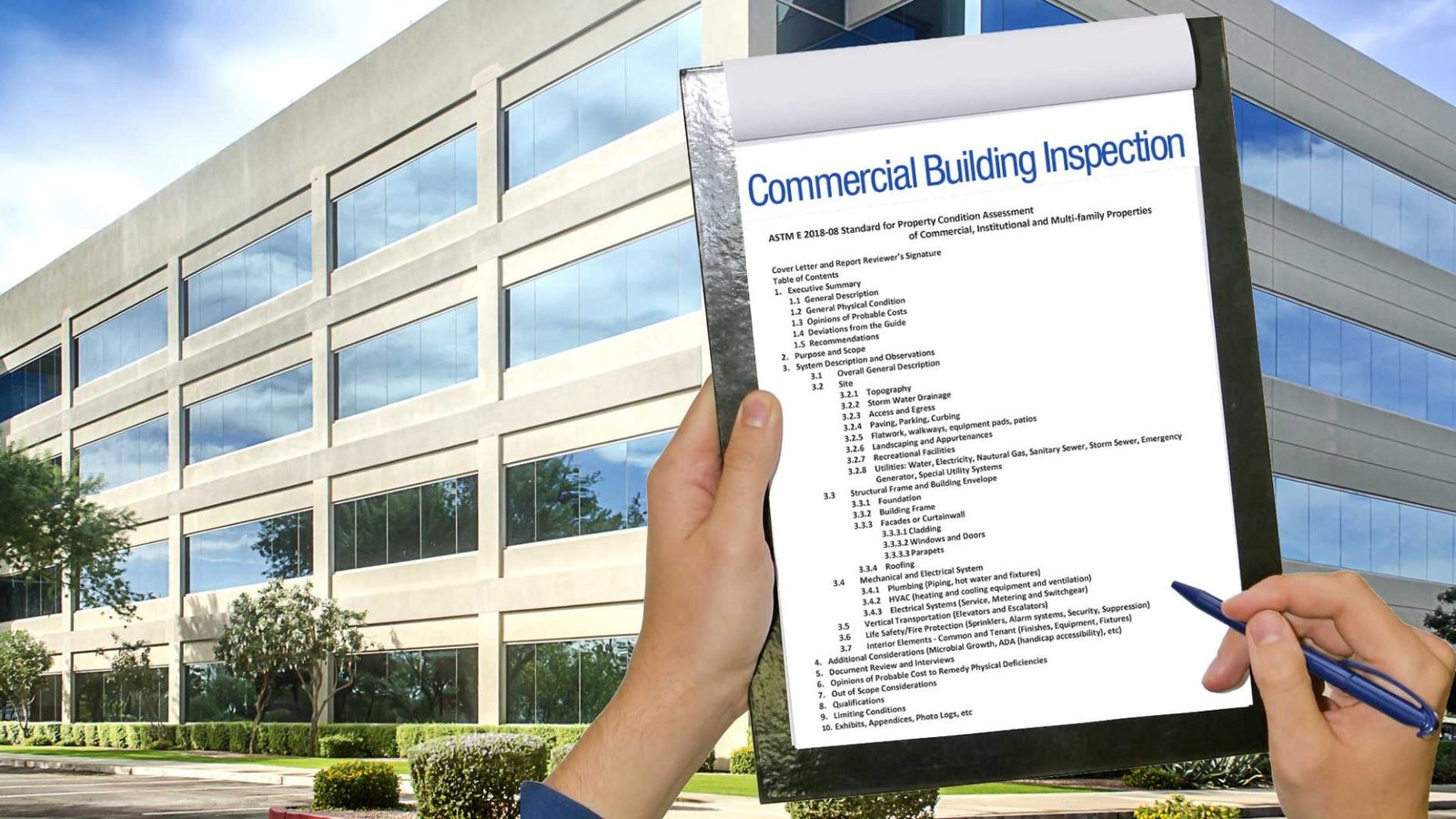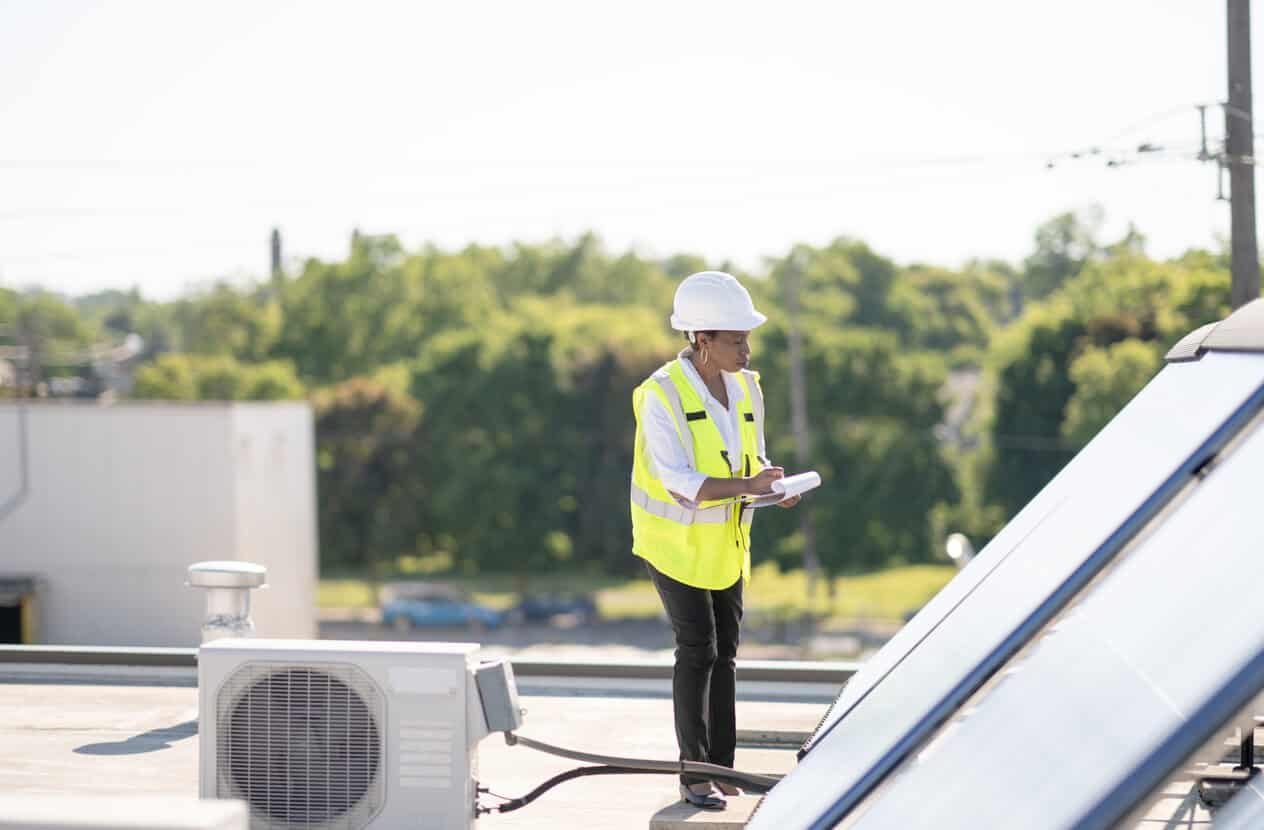Owning and managing a commercial property involves a significant investment, and protecting that investment is crucial. One of the best ways to ensure your property stays in good condition and avoids costly repairs is through regular commercial inspections. These inspections are designed to identify potential issues before they become major problems, helping to prevent property damage and preserving the value of your real estate.
In this article, we’ll explore how commercial inspections help prevent property damage, the benefits they offer, and why property owners should prioritize these inspections for long-term protection.

1. Identify Early Signs of Wear and Tear
One of the primary ways a commercial property inspection helps prevent damage is by identifying early signs of wear and tear. Over time, components of a building—like the roof, plumbing, and electrical systems—naturally deteriorate. An inspector can spot minor issues before they become major problems. For example:
- Roof Issues: A roof inspection can detect small leaks or damaged shingles that could lead to water damage if left unaddressed.
- Plumbing Problems: Leaky pipes or water stains on walls may signal hidden plumbing issues that could result in more significant water damage if not repaired.
- Electrical Wear: Faulty wiring or old circuit breakers can present fire hazards, and early detection helps avoid dangerous situations.
Catching these issues early can help you avoid more extensive damage later, saving you from costly repairs and protecting the overall structure of the building.
2. Prevent Structural Damage
Structural damage can be one of the most expensive issues to fix in commercial real estate. Commercial inspections help identify potential problems with the foundation, walls, and load-bearing structures that could compromise the integrity of the building. By detecting these issues early, you can take action to address them before they cause major damage. Some common structural problems include:
- Foundation Cracks: Cracks in the foundation can allow water to seep in, leading to mould growth, weakened walls, and further foundation settlement.
- Sagging or Cracked Beams: These could be signs of larger structural issues that, if ignored, might lead to unsafe conditions or costly repairs.
- Uneven Floors: Uneven floors might indicate foundation problems that, if not repaired, could lead to further settling or even collapse.
A comprehensive inspection of the building’s structural integrity allows you to take preventative measures and avoid severe damage in the future.
3. Detect Water Damage and Moisture Problems
Water damage is one of the most common causes of property damage, especially in commercial buildings. Whether it’s from leaks, flooding, or poor drainage, moisture problems can lead to a variety of issues, including mould, mildew, wood rot, and weakened structural components.
A commercial property inspection can help identify water damage in hidden areas such as the basement, crawl spaces, or behind walls. Inspectors will look for signs of:
- Leaks in Roofing or Gutters: A faulty roof or clogged gutters can allow water to seep into the building, causing long-term damage.
- Water Stains on Walls and Ceilings: These stains may indicate hidden leaks that could damage the building’s structure or encourage mould growth.
- Excess Moisture in Basements: An inspection will check for high humidity levels, which could lead to mould growth or further moisture problems.
By detecting water-related issues early, you can fix the root cause and prevent further damage from occurring. This not only protects your building but also helps maintain a healthy indoor environment for tenants and employees.
4. Ensure Proper Drainage and Prevent Flooding
Improper drainage around a commercial property can lead to flooding and long-term water damage. Poorly functioning drainage systems can cause water to pool around the foundation, which can eventually lead to foundation cracks, leaks, and structural instability.
During a commercial property inspection, the inspector will evaluate the drainage system, including:
- Gutters and Downspouts: Inspectors will ensure that gutters and downspouts are clear and functioning correctly to direct water away from the building.
- Grading Around the Property: The ground should slope away from the building to prevent water from collecting near the foundation.
- French Drains and Sump Pumps: These systems should be checked to ensure they are working efficiently to move excess water away from the property.
Taking care of drainage issues before they become serious can help prevent flooding, protect the foundation, and avoid the expensive repairs that come with water damage.
5. Improve the Longevity of Building Systems
Commercial buildings rely on several systems to function properly, including HVAC, electrical, and plumbing systems. Regular inspections of these systems help ensure they are working efficiently and can prevent costly breakdowns that lead to property damage.
For example:
- HVAC Inspections: Regular checks of the heating, ventilation, and air conditioning systems help ensure they are working efficiently and prevent overheating, water leaks, or air quality problems.
- Electrical Inspections: Faulty wiring or outdated electrical systems can lead to fires or power outages. An inspection can identify issues before they escalate.
- Plumbing Inspections: Pipes that are nearing the end of their life can burst or leak, causing flooding or water damage. Inspections can identify weak spots and allow for preventative maintenance.
By maintaining these systems and addressing problems early, you can prevent expensive damage and ensure your building’s systems continue to function properly for years.
6. Prevent Pest Infestations
Pest infestations are a common but often overlooked issue that can cause significant damage to a commercial property. Rodents, termites, and other pests can damage insulation, wiring, walls, and even structural components if left unchecked. A commercial property inspection will often include a pest inspection to identify signs of infestations, such as:
- Termite Damage: Termites can cause extensive damage to wooden structures, including beams and floors.
- Rodent Damage: Rats and mice can chew on wiring, insulation, and pipes, leading to electrical fires or water leaks.
- Other Pests: Insects, birds, and other animals can cause damage to roofs, windows, and insulation.
By catching pest problems early, you can take steps to eliminate them and prevent long-term damage.
7. Save Money on Future Repairs
Preventative maintenance and early detection of issues often save money in the long run. A commercial property inspection helps identify problems before they become major repairs, which can be much more expensive. By fixing small issues early, you avoid the costs associated with larger, more serious repairs that might arise if the problem goes unnoticed.
For example, repairing a small roof leak may only cost a few hundred dollars, but if the leak isn’t addressed, it could lead to extensive water damage and mould growth, resulting in thousands of dollars in repair costs. Preventing property damage through regular inspections allows you to manage repair costs effectively and keep your investment protected.
8. Increase Property Value and Attract Tenants
Keeping a commercial property in good condition is crucial for maintaining or increasing its value. Properties that are well-maintained tend to attract better tenants and have higher rental rates. Regular inspections help ensure that everything in the building is functioning properly, which not only protects your investment but also makes your property more appealing to potential tenants.
Additionally, if you’re planning to sell the property in the future, a well-maintained property will fetch a higher price. A commercial inspection helps maintain the property’s value by preventing damage that could decrease its marketability.
Conclusion
Commercial property inspections play a vital role in preventing property damage and protecting your investment. By identifying issues early, preventing structural damage, and ensuring systems are functioning properly, regular inspections help you avoid costly repairs and keep your property in excellent condition. Whether you’re maintaining your building for tenants or preparing it for future sale, a commercial property inspection is a proactive step in preserving its value and avoiding unnecessary damage.




